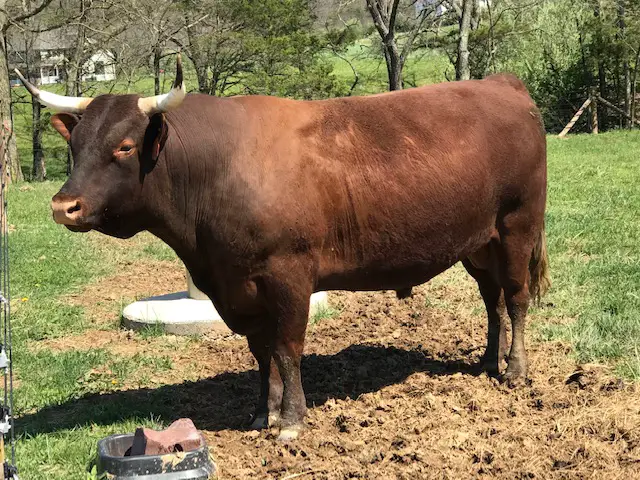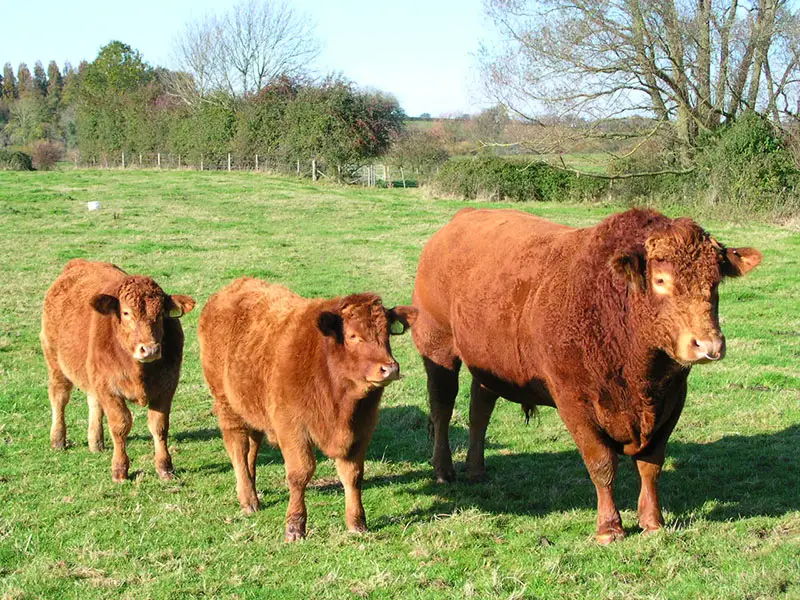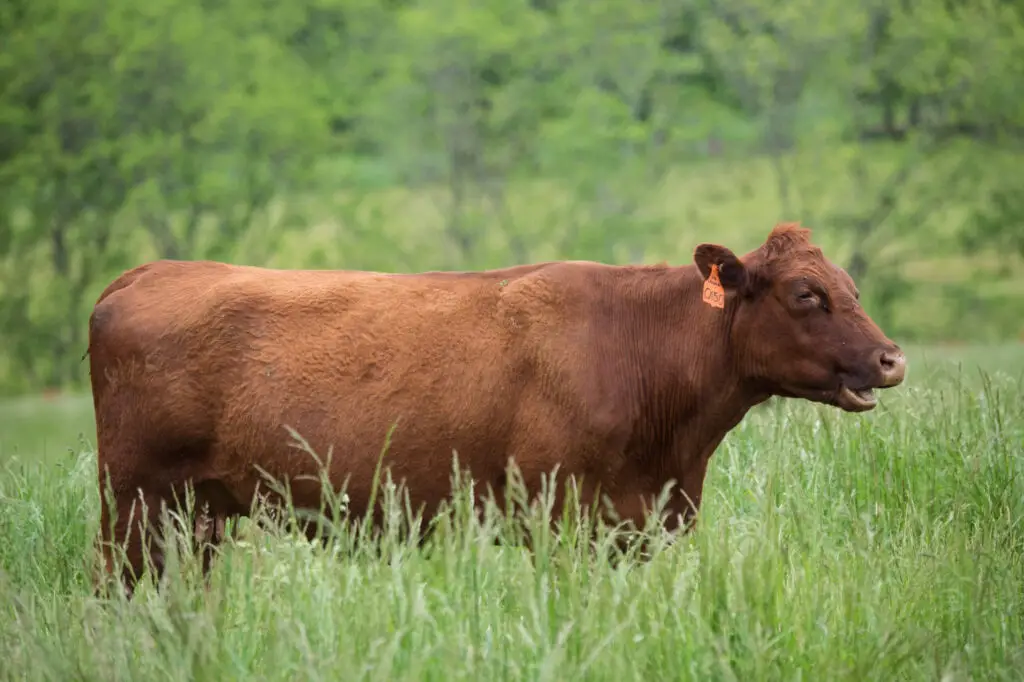
Devon Cattle! Picture this: rolling green hills, a picturesque farm, and a herd of deep red cattle grazing peacefully in the pasture. This idyllic image could easily feature Devon cattle, a breed steeped in history and known for their gentle nature and delicious beef. Whether you’re a seasoned rancher, a homesteader, or simply curious about cattle breeds, the Devon has something to offer. Let’s dive into their origins, characteristics, and what makes them a compelling choice for many cattle operations.
Origin
The story of Devon cattle begins in the lush countryside of Southwestern England, specifically the counties of Devon and Somerset. These cattle have been a fixture in the region for centuries. They were historically valued as triple-purpose animals – providing beef, milk, and serving as powerful draft oxen for farm work. It’s believed they are one of the oldest cattle breeds in Britain!
Characteristics
Devon cattle are visually striking with their rich red coats, which can range from a light cherry hue to a deep mahogany. They’re a medium-sized breed, with bulls reaching around 1800 pounds and cows slightly smaller. Devons sport moderately sized, upward-curving horns, adding to their distinctive appearance.
Beyond their looks, Devons are known for their hardiness and adaptability. They can thrive in various climates and are known for excellent foraging ability on less-than-ideal pastures. However, one of their most endearing traits is their renowned docility. Devons generally have calm, manageable temperaments, making them a pleasure to work with.
Devon cattle: Pros
Let’s explore why Devons might be a great fit for your operation:
- Delicious, High-Quality Beef: Devon cattle are celebrated for their flavorful, well-marbled beef. This makes them sought-after by both grass-fed and grain-finished beef producers.
- Adaptability: Whether facing hot weather or challenging terrain, Devons tend to handle it with ease. Their hardiness makes them suitable for diverse environments.
- Excellent Temperament: Their docile nature makes them easy to manage and reduces stress for both the animals and the handlers.
- Manageable Size: If you have a smaller-scale operation or prioritize easy handling, Devons’ moderate size can be an advantage
Devon cattle: Cons
For a balanced view, let’s consider some potential drawbacks:
- Smaller Frame: Compared to breeds specifically designed for maximum beef production, Devons won’t reach the same size. This means a slightly lower total carcass weight.
- Availability: Depending on your location, it might be slightly harder to find purebred Devon cattle compared to some of the most popular commercial breeds.

FAQ
Let’s tackle some common questions potential Devon owners might have:
- What are Devon cattle used for? Primarily, Devons are beef cattle. Historically, they were also used as draft animals and for milk production. Some breeders crossbreed Devons to introduce beneficial traits like docility into other lines.
- What is the quality of Devon cattle meat? Devon beef is known for its excellent flavor and marbling. This marbling contributes to tenderness and juiciness.
- Do Devon cattle have horns? Yes, Devon cattle have horns. They are typically moderate in length and curve upwards with a slight lyre shape.
- What are the characteristics of a Devon? Key Devon characteristics include their red coloration, docile temperament, hardiness, and quality beef.
- What is another name for Devon? They are sometimes called Red Rubies due to their coloring or North Devon if you want to emphasize their regional origin.
- What are some interesting facts about Devon cattle? Here are a few tidbits to impress your friends:
- Devons are believed to be one of the oldest cattle breeds in Britain.
- They were among the first cattle breeds brought to North America by European settlers.
- A special strain called Milking Devons exists, focusing on higher dairy production.
South Devon Cattle vs. Red Devon Cattle vs. North Devon Cattle
In the past, there were regional distinctions within the breed (South Devon–larger, milkier; North Devon–beefier). However, modern Devons often incorporate genetics from across these subtypes, offering the best of both worlds.
Milking Devon Cattle
While all Devons have some milk production potential, the Milking Devon strain specifically focuses on this trait. These are smaller-framed animals with increased milk output compared to a standard Devon. If you are seeking a dual-purpose cow for a homestead or small farm, the Milking Devon could be an interesting option.

Conclusion
If you’re looking for a hardy, gentle breed of cattle that produces fantastic beef, the Devon is definitely worth considering. Their rich history, easy-going temperament, and adaptability make them a compelling choice for a variety of operations. While they might not be the top producers in terms of sheer size, they make up for it in flavor, manageability, and the ability to thrive in diverse environments.
Have you ever encountered Devon cattle? Share your experiences or any further questions in the comments below!
